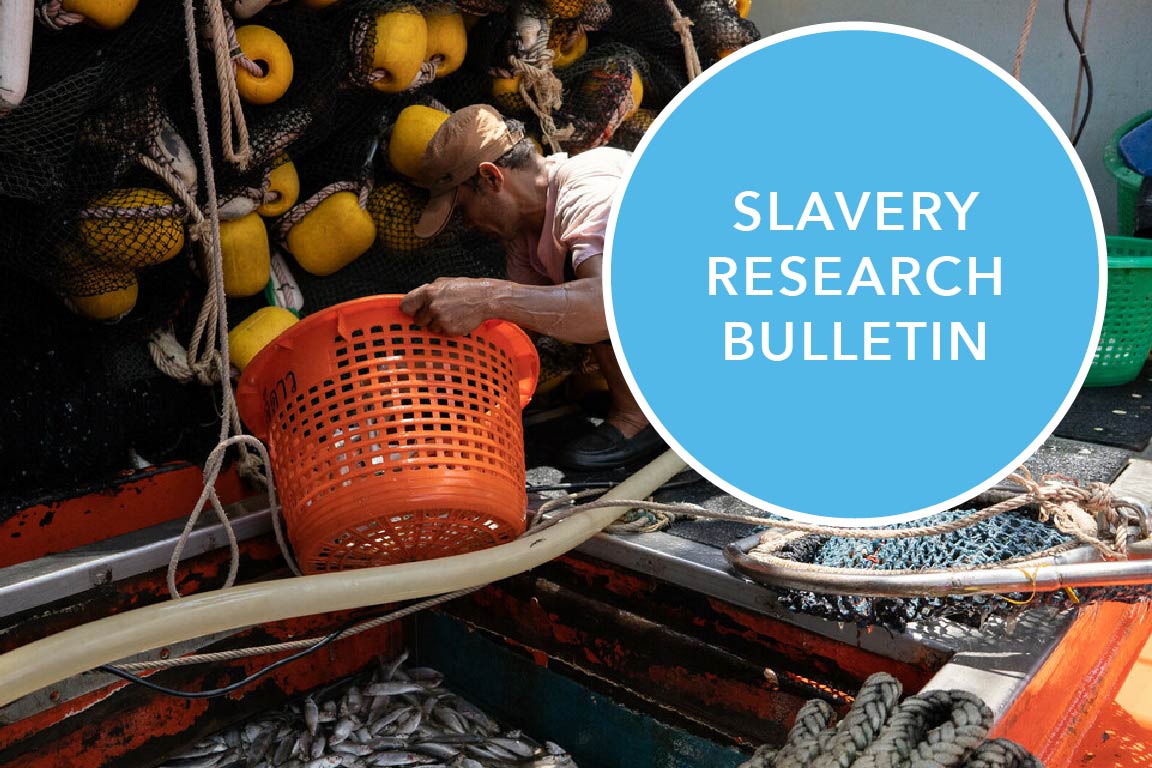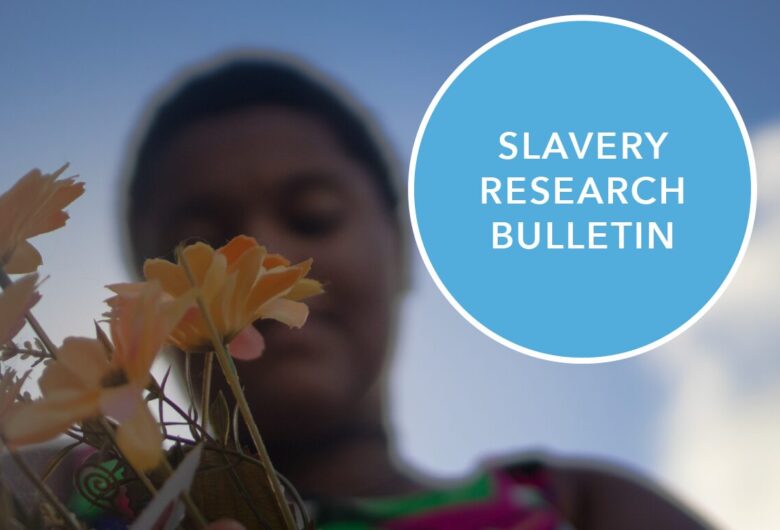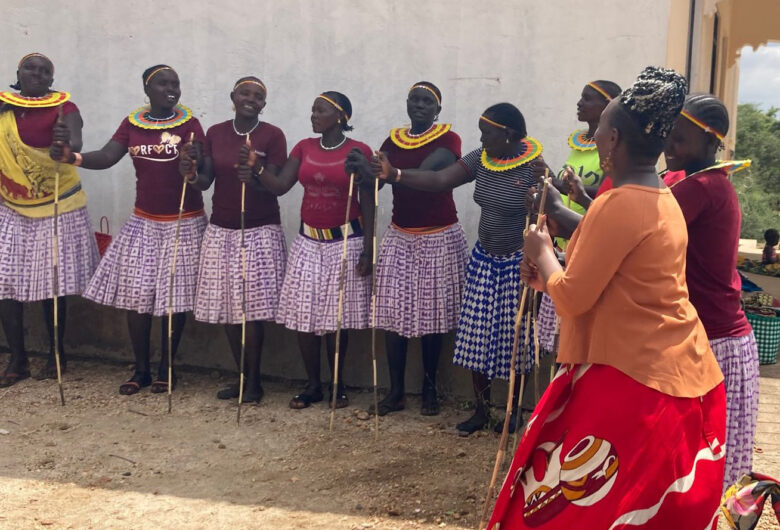Welcome to the Freedom Fund’s monthly bulletin designed to bring you new and compelling research from the global anti-slavery movement.
Solar industry continues to be exposed to Uyghur forced labour
Researchers at Sheffield Hallam University assess ten solar manufacturers’ exposure to the Uyghur region, including the top five (which together manufacture 70 percent of the world’s solar modules) operating in China, Southeast Asia, the EU, and the US. The assessment reveals that the Uyghur region now accounts for approximately 35 percent of the world’s polysilicon. Supply chains purportedly free of inputs from Xinjiang continue to include sub-suppliers that have exposure, with 7 to 14 percent of solar modules sourced from China-based companies with ties to the Uyghur region.
Global report on child trafficking by the International Organization for Migration (IOM)
IOM and Harvard University investigate global patterns of child trafficking, drawing on IOM’s Victims of Trafficking Database (VoTD) that holds data on 69,000 identified victims, 18 percent were children aged 17 or younger. The analysis shows that 43 percent of child victims were trafficked for forced labour and 20 percent for sexual exploitation, with over half (57 percent) being trafficked within their own countries. It also found that children with lower levels of education were 23 times more likely to be trafficked compared to those who attended high school.
Migrant domestic workers in the Southeast Asia region
The International Labour Organization explores the skills and working conditions of migrant domestic workers in Malaysia, Singapore and Thailand. Through surveys and interviews with 1,201 migrant domestic workers, 610 employers and 38 stakeholders, the study reveals that 29 percent of domestic workers in Malaysia, 7 percent in Singapore and 4 percent in Thailand have experienced forced labour. Tasks routinely performed by domestic workers fall under a ‘Skill Level 2’ classification – but domestic work is largely seen as ‘unskilled’ and workers are not valued, hired or paid at a corresponding, appropriate level.
Forced labour risk in US land-based domestic food production
Researchers at Tufts University and the University of Nottingham estimate the risk of forced labour in the US land-based food supply. By integrating various data sources—including production, trade and labour data—the highest contributor was found to be the production of meat, poultry and eggs (28 percent); sweeteners, beverages, chocolate and cocoa, and others (23 percent); and processed fruits and vegetables (18 percent). The report also highlighted that 62 percent of the total risk stems from domestic production, especially the reliance on migrant workers and the immigration program increasing their dependency on employers.
Effect of hazardous labour on children’s health and education
A study led by Innovations for Poverty Action re-analyses the Bangladesh Government’s Multiple Indicator Cluster Survey data to review the linkages between hazardous child labour, children’s well-being, and educational attainment. Drawing on data collected from 64,400 households in 2019, the study found that 3.4 percent of the children aged 5 to 17 years were in hazardous child labour. Children in this group are 5.4 times more likely to drop out of school, and 1.4 times more likely to face difficulties in psychosocial functioning.
Read on
The University of Birmingham, University of Nottingham and Survivor Alliance report on the importance of mental health and psychological assistance for survivors, and the effects of harmful policies on their wellbeing.
Justice & Care examines forced scamming as an emerging form of modern slavery and the modus operandi used by criminal groups.
UNICEF Innocenti studies the types of online harm—including commercial sexual exploitation—encountered by children in Ethiopia, Kenya, Mozambique, Namibia, Tanzania and Uganda.
Freedom Fund news
The Freedom Fund recently launched Funding Frontline Impact, a free online resource for donors who believe in the power of supporting frontline organisations.
Visit our Newsroom for more updates.
Research library
Visit our Slavery Research Library to access anti-slavery resources from across the globe.
Contact
The Slavery Research Bulletin is produced monthly by the Freedom Fund, a global fund with the sole aim of helping end modern slavery.
Research being featured in this bulletin does not equal endorsement by the Freedom Fund.
Click here to sign up to the Slavery Research Bulletin mailing list.
Photo credit: Jittrapon Kaicome / The Freedom Fund



